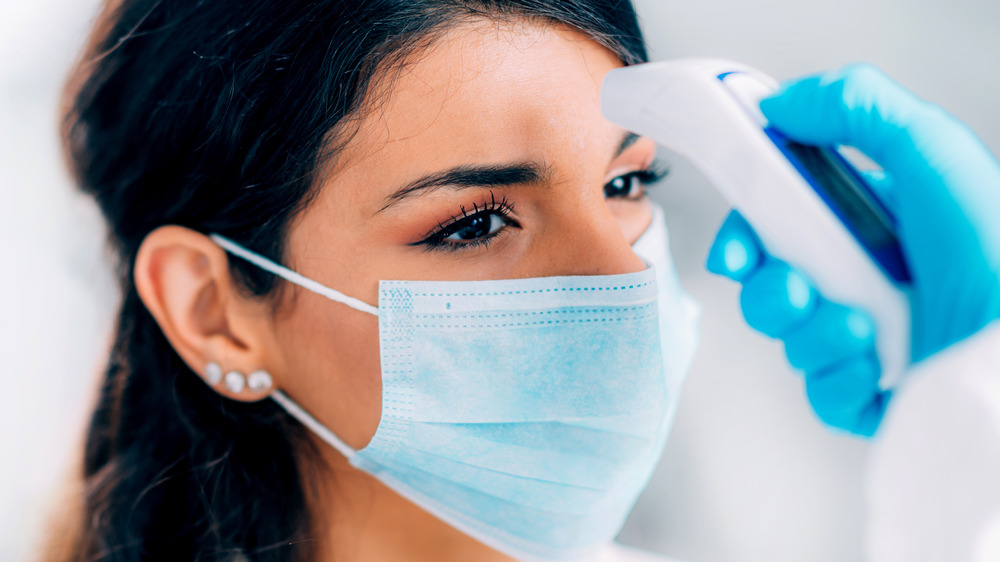The Reason Your Normal Body Temperature Might Not Be 98.6
If you're taking your temperature often to monitor yourself for COVID-19 symptoms, don't panic if your reading is a little bit off, medical experts say (via CNN). A number of factors affect our body temperature daily. Determining whether you have a fever depends on what your normal temperature is.
"Anecdotally, I would say that there are a lot of people who may not be aware that normal temperature is a range, not a fixed number," Dr. Donald Ford, a family medicine physician at Cleveland Clinic in Ohio, told CNN. "More recent large studies show normal temperatures ranging from 97 to 99 degrees, and many individuals may fall outside of this range and be perfectly fine."
According to the US Centers for Disease Control and Prevention, a fever is 100.4 degrees Fahrenheit (or 38 degrees Celsius) or higher. The general public thinks that a person's "normal" body temperature is 98.6 degrees Fahrenheit (or 37 degrees Celsius), thanks to German doctor Carl Wunderlich. In the mid-1800s, he took more than 1 million armpit temperatures from about 25,000 patients to calculate 98.6 degrees Fahrenheit as an average.
But body temperature naturally fluctuates, Dr. Waleed Javaid, the director of infection prevention and control at Mount Sinai Downtown in New York, told CNN. Typically, your temperature is slightly lower in the morning and peaks by one or two degrees by evening. Certain medications, such as acetaminophen and ibuprofen, can make your temperature a little lower.
Cold weather and hot or cold foods can affect your body temperature
Environmental conditions and food or drinks also tinker with body temperature, according to Time. That's why Dr. Javaid recommends waiting an hour or two after coming inside from cold temperatures or after consuming hot or cold drinks for a more accurate reading.
What's more, the type of thermometer you use might not reflect your true temperature. Thermometers that are hospital-grade or from drugstores are best. Ear or skin thermometers are easy to use, but these areas are sensitive to outdoor temperatures. Oral or rectal thermometers are the most accurate; readings from under the armpit land somewhere in between oral and rectal readings and those from skin and ear thermometers (via Verywell Health).
If you're curious what your typical baseline temperature is, you could ask your doctor if you visit there often, or check your temperature at home for a few weeks. Record it three times throughout the day, such as in the morning, around noon, and in the evening. You'll soon have enough data for an average to learn whether you're naturally a cool customer at, say, 97.6 degrees Fahrenheit.
As for a fever, regardless of the infection, that temperature stays high, Dr. Javaid said. If you notice your temperature is unusually a degree or two higher than normal and are concerned about COVID-19, monitor yourself over the next day or two for other symptoms, such as shortness of breath, fatigue, cough, or loss of smell or taste, he said.


